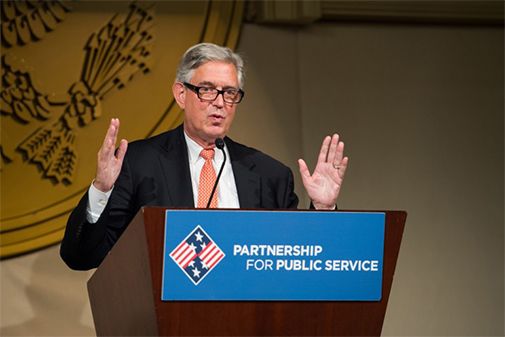The Best Teams Have These 3 Things
In my over 40 years as a business leader in the corporate arena, it’s been one of my distinct joys to lead and be a part of some amazing, cohesive, high-performance teams. When you’ve assembled a team that gets things done, and does so with integrity, it is deeply fulfilling to watch as everybody works together to shoot the lights out. But it can be tricky to get the balance exactly right. As a senior leader in the Fortune 500, I’ve had the opportunity to think a lot about this crucial leadership question: What are the ingredients to a successful team?
It’s an important thing to understand. Leadership is the art and science of influencing others. As we strive to responsibly cultivate our influence with teams, and earn their trust, we must first be able to identify what the key components of highly-functioning teams are. In my experience, a great team boils down to three key things. You can evaluate any team – one that’s working, or one that isn’t — using these three areas as a tool to assess what the issues, or strengths, may be.
Leadership is the art and science of influencing others.
Competence.
This may seem like a blinding glimpse of the obvious but leaders must start with competence when building or evaluating teams. Ask yourself, can the people assembled perform in their specific area of responsibility? Competence is not necessarily a given so it’s always worth considering this carefully. You hope that the process you’ve set in place to attract, hire, and place talent has worked — but nothing is guaranteed. Sometimes talented people can find themselves on a team where their skill set is not being fully or appropriately leveraged, or sometimes there’s a mismatch between style and culture etc. In reality, there are many factors that can undermine a team’s ability to perform.
That’s why it is imperative to think closely about whether or not a team has the capacity and competence to get the job done. When you observe an outstanding team, it’s not surprising to see that its members are highly competent; great teams are always comprised of extraordinarily capable and motivated individuals with the right skill set for the job at hand. They’ve got to have the chops.
Character.
This is where things become more complicated. Competence alone is not enough to guarantee good results. Not by a long shot. Unfortunately, high-competence, low-character contributors do exist; it’s important to weed them out because their misdeeds can poison the entire effort of your team, or even your entire organization. If you have a superstar salesperson who pursues the sale with questionable ethics, or a communications whiz who undermines teammates in a desire to look good externally – their skills will not be enough to save the team. Maybe they can perform in the near-term, but not in a sustainable way. Ultimately, the low-trust environment created by a lack of integrity will jeopardize the team’s ability to deliver.
Do you walk your talk?
So how do you assess character? We’ve developed a comprehensive leadership character checklist here, but the for the purpose of evaluating teams, it’s as simple as asking this question: does this person, or group of people, do what they say they are going to do? Do they deliver when it matters? Can I count on them – and can they count on each other? While there is a rich tapestry of behaviors that can contribute to a person or team’s overall character, it all really comes down to people doing what they say and having each other’s backs. Again and again. That’s how you build trust. And that’s how you gauge character.
I would also add that – as the leader, you’re part of the team, so you must hold yourself to the same standard. Can your people count on you to show up for them when it matters? Do you walk your talk? Make sure the answer is yes.
Chemistry.
It is maddening, but perhaps fitting, that the final (and arguably most important) component of highly successful teams is the hardest to define. You might not be able to articulate exactly what comprises chemistry, but most people will tell you: you know it when you see it. And it’s important to think about as you’re crafting teams and building high-performance relationships.
Although chemistry can be an elusive thing to measure – in my experience, there are two things to think about: are their skill sets complementary and do they genuinely care about each other? You can’t have one or the other. Neither component alone guarantees the extraordinary work output that chemistry creates. You must have both. When each person can contribute fully to a team in a way that uniquely supports and improves the efforts of the other team members – and when each team member gets along and really cares about the other individuals as people, not just as colleagues – that’s when a team is truly poised to make magic. There may be some trial and error; sometimes you’ll have to do some tinkering to a team to get the chemistry just right, but it’s worth it. A high-chemistry team will astound you with what it can achieve.
A high-chemistry team will astound you.
How does your team measure up? As leaders, we’re depending on other people in a deeply significant way. And they’re depending on us. This is the truest in the case of teams. We can’t do our jobs without the support and skills of the teams we build, join, and grow. There’s an elegant symbiosis when we get it right. Everybody wins when we carefully ensure the triumvirate of Competence, Character, and Chemistry are in place. And, that doesn’t just apply to our teams; it applies to our own leadership in equal measure. We should assess ourselves inwardly using the same criteria we use to evaluate teams outwardly. Just as people need us to create the conditions for them to thrive in high-performance teams, they also deserve a leader who has the skills and character to lead and who genuinely cares about them.

“Doug Conant is remarkable—and so is this work.“
– Stephen M. R. Covey
Author of The Speed of Trust

The Blueprint
6 Practical Steps to Lift Your Leadership to New Heights
By Douglas Conant with Amy Federman

Have Doug Speak at Your Event
Doug works collaboratively with event organizers to customize his material for each audience.




0 Comments